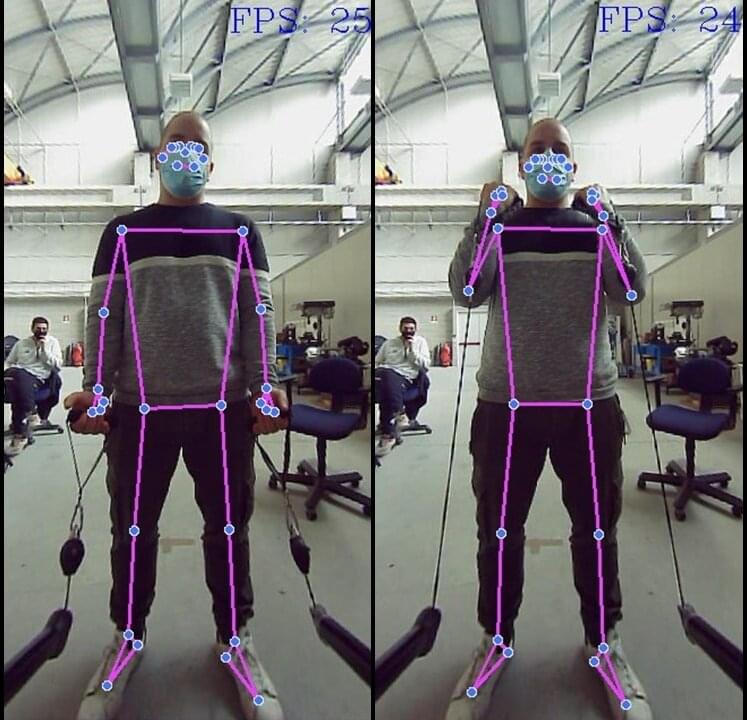In recent years, engineers and computer scientists have created a wide range of technological tools that can enhance fitness training experiences, including smart watches, fitness trackers, sweat-resistant earphones or headphones, smart home gym equipment and smartphone applications. New state-of-the-art computational models, particularly deep learning algorithms, have the potential to improve these tools further, so that they can better meet the needs of individual users.
Researchers at University of Brescia in Italy have recently developed a computer vision system for a smart mirror that could improve the effectiveness of fitness training both in home and gym environments. This system, introduced in a paper published by the International Society of Biomechanics in Sports, is based on a deep learning algorithm trained to recognize human gestures in video recordings.
“Our commercial partner ABHorizon invented the concept of a product that can guide and teach you during your personal fitness training,” Bernardo Lanza, one of the researchers who carried out the study, told TechXplore. “This device can show you the best way to train based on your specific needs. To develop this device further, they asked us to investigate the viability of an integrated vision system for exercise evaluation.”
